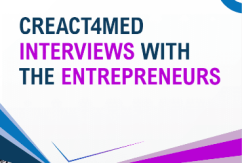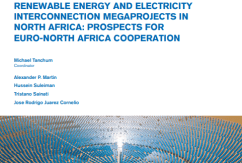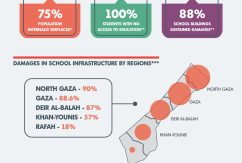From trash to life: Lebanese sisters turn food waste into green fertiliser
GARBALISER specialises in the production of high-quality liquid fertiliser made from organic waste and sold at an affordable price. The start-up aims to become a driving force in the socio-economic life of the small village of Brital, in the Bekaa.
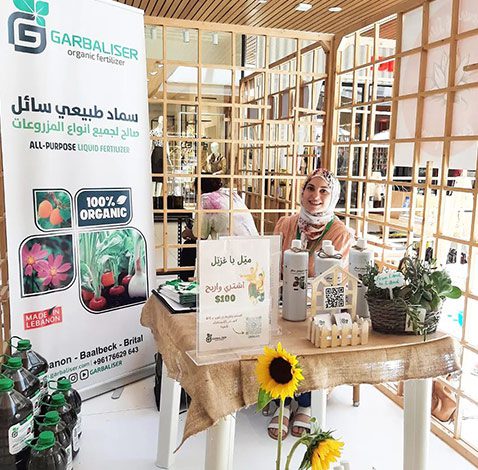
What strikes one the most when speaking with Hanan Ismail for the first time is her ability to shift from a light banter about her situation to a passionate and highly technical explanation of her company’s natural anaerobic fermentation processes.
The 32-year-old has a way with words, it is undeniable. But what she exudes even more is her contagious love for life and drive for change. Between two jokes, Hanan remembers how it all started. “A lot of people found themselves with a lot of free time they got during COVID. But my sister Zeinab and I didn’t! As soon as we entered lockdown, we were running around the house to keep ourselves busy.”
One day, their two bubbling brains got caught up in a webinar about problems women farmers are facing with regards to pollution in agriculture and the negative impact of chemical fertilisers on their health, crops and finances. “We knew that Lebanon’s pollution had surged dramatically since even before the revolution,” Zeinab says.
According to the World Health Organization, some 1.35 million people in Lebanon suffer from food insecurity. And whilst agriculture employs more than half of the population, it contributes only around 5.5% to GDP and around 80% of the country’s food needs are covered by imports.
With these two issues in mind, the Ismail sisters came up with the idea of developing a system that would treat organic residues -aka solid waste- into a chemical-free and nonpolluting fertiliser through advanced fermentation technology. “Although our family works in agriculture -my father and my uncle both have crops-, we knew absolutely nothing about the subject,” explains Zeinab, who is an electrical engineer graduate, while her sister holds an MBA in marketing.
“We also come from a very small village where women do not traditionally open their own businesses. If you want to go to the nearby town, they would have to ask the permission of their father or brother. So, imagine us building machines at home to launch our own start-up!” Hanan recalls with laughter.
Despite their initial scepticism, the girls’ family noticed the efforts they put into their project, and the support they started to garner from their weekly visits to the municipality. “The real change happened when we invited the mukhtar (local authority figure seen as the head of the village), and all the important people from the area to watch our work process,” the sisters explain. “They nodded, said ‘Bravo, good luck’ and began supporting us.”
Baby stepping into entrepreneurship
The Ismail sisters started small: with 10 dollars, they developed an idea based on cardboard and plastic, following conversations they had with professionals from the waste management sector, restaurants and fertiliser experts. “Quickly, we moved onto stages 2 and 3, which cost us respectively 50 and 250 dollars,” recalls Zeinab, pointing at a graph they developed for their pitches to investors.
At each stage, the girls built their own equipment, thanks to the unwavering support of their father. The first batch produced in hand, they went to a neighbouring farmer and asked him to try it out in his field. “That is when he asked us ‘how much are you selling it for?’ and we just could not believe it!”
The sisters proudly display the picture of Khaled, their first customer, standing in the middle of a field where he tried Garbaliser. The results were astonishing. “This is when it dawned on us that we were going to need extra help. We had our factory and the idea but we were missing a lot of skills to turn this into a full-fledged business,” explains Hanan, citing the support she received from the WEEL programme.
An EU-funded initiative that supports Lebanese businesswomen with grants from 15,000 to 50,000 euros, WEEL targets 18 Micro, Small and Medium Enterprises (MSMEs) and start-ups like Garbaliser by helping them cover investments, expenditures and technical assistance. The program is implemented by Expertise France through the local incubator Berytech.
“With WEEL, we really took a turn: we validated our business idea, we entered the growth then the market stage and we networked with potential partners. They also helped us tailor our product to the needs of the clients: making it odourless and highly concentrated with high-quality packaging,” Zeinab explains. The girls also were able to buy a solar-based system and some machines they needed to scale up.
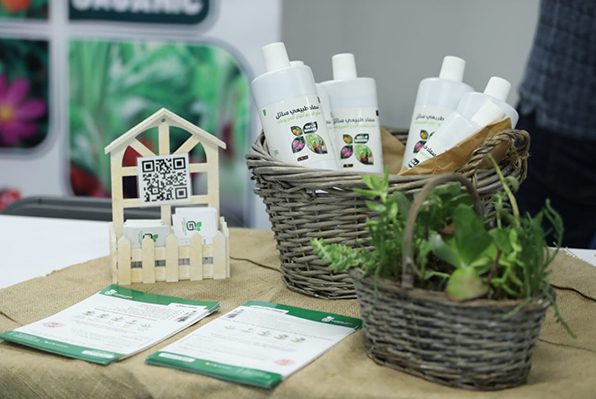

Social impact before
Scaling up was what the sisters needed to focus on their real target: their community. In addition to selling their product at the most affordable price for farmers, they also seek to have a real socio-economic and environmental impact on their area. “We give discounts on our product when people bring back their bottle, to encourage avoiding waste. We promote recycling and zero-waste by collecting people’s waste for free.”
“We do have the hope to become a zero-waste area in a few years. Can you imagine the headlines? Brital becomes the first waste-free area in Lebanon !?” Hanan exclaims, before returning to her serious tone as she evokes her vision for empowerment. “We come in good faith. We really want to help the people around us and help them build their capacities. It is very hard to find a job here so, if we manage to equip them with marketable skills, they will be able to reach better opportunities, whether it is with us or with other companies.”
They see the WEEL project as the first step in a virtuous cycle. “If someone comes to me with an idea, I want to be able to help him or her discover the right way to achieve this. Berytech and WEEL with funding from the EU did it for us so we will do it for others!”
“Now, I hope people will feel proud to say ‘I am from Brital, a very innovative village!” Hanan exclaims, with a joyful laugh.
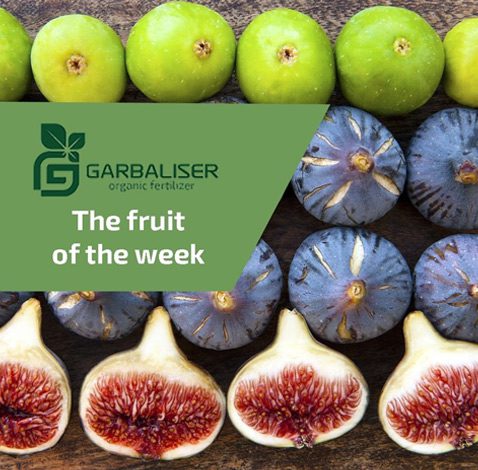

The project
WOMEN ECONOMIC EMPOWERMENT FOR LEBANON PROJECT (WEEL) aims at supporting women-owned and women-led businesses In Lebanon by providing between 18 MSMEs and startups with grants ranging from 15,000 to 50,000 euros to be used for expending investments, covering expenditures and getting technical assistance. this initiative is part of the umbrella programme funded by the European Union for Women’s Empowerment, EU4WE.
About the programme
EU4WE was launched by the European Union in October 2019 for a period of 42 months.
Implemented by Expertise France, EU4WE aims at promoting full and unconditional equality between men and women in Lebanon. The specific purpose of EU4WE is to reduce gender-based violence through women’s empowerment and enhance existing institutional mechanisms working towards gender equality.








